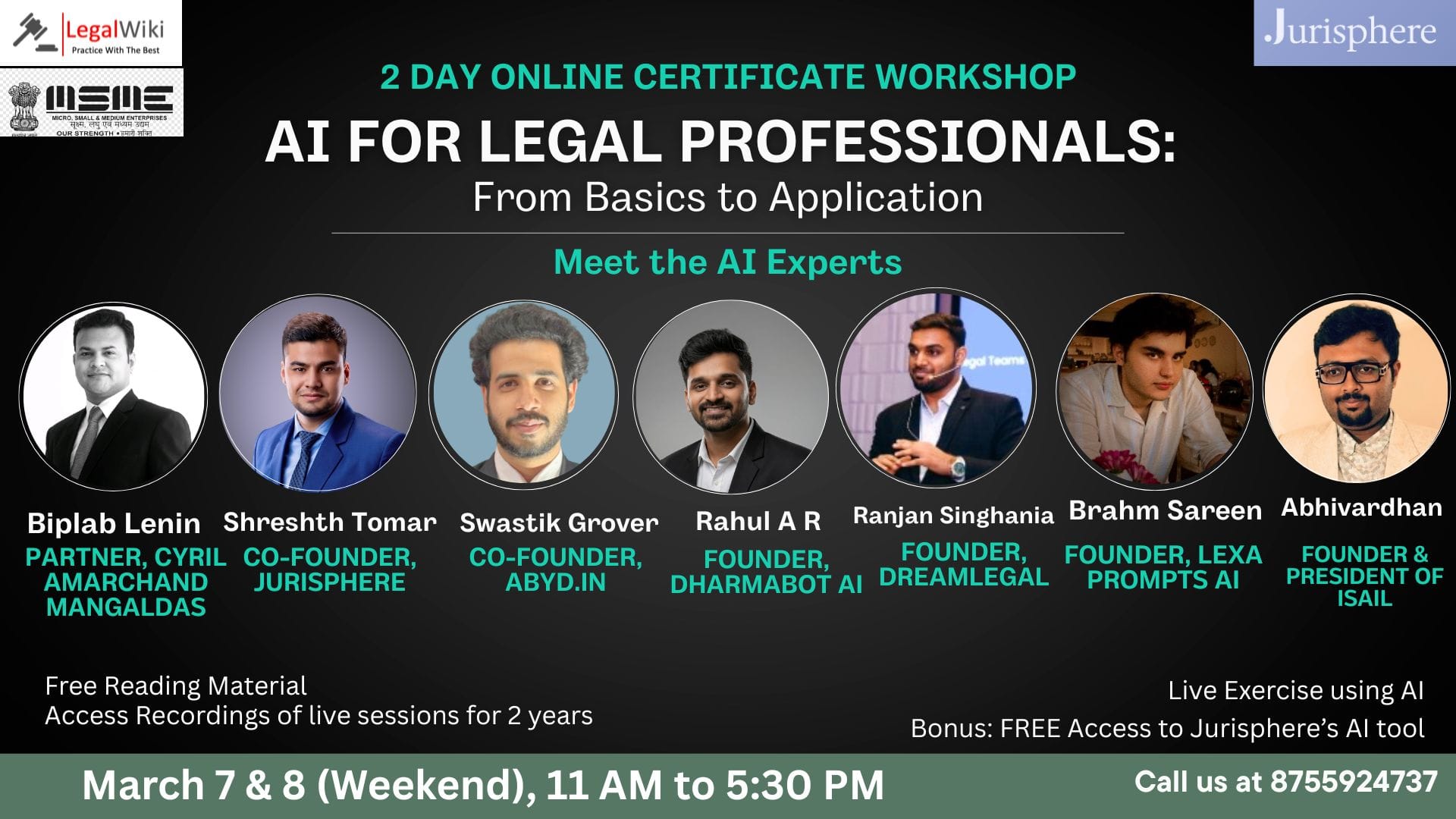Madras High Court
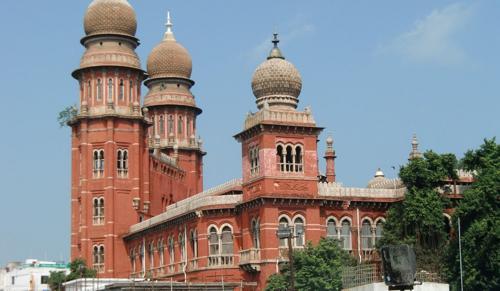
Madras High Court: ‘No Caste, No Religion’ Certificate Requires Formal Relinquishment of Faith
The Madurai Bench of the Madras High Court has ruled that a person seeking a “no caste, no religion” certificate must first formally relinquish their religion.
Justice Krishnan Ramaswamy held that unless the petitioner relinquishes his religion in accordance with Hindu rites, such a certificate cannot be issued.
The case arose after the Tahsildar of Thiruppathur Taluk rejected Chellamanickam’s July 9, 2025, application, citing the absence of any government order permitting the issuance of such certificates. The petitioner admitted he had not formally renounced Hinduism.
Observing that no proof of relinquishment was produced, the Court dismissed the writ petition but granted liberty to apply afresh upon completing the required formal process.
[Chellamanickam v. Principal Secretary]
VishwaBookmark
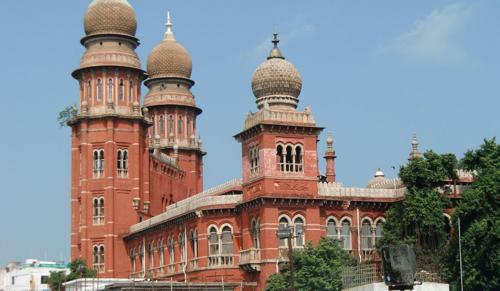
Non-Compete Clauses Between Hospitals and Doctors Unlawful: Madras High Court
The Madras High Court held that non-compete clauses between hospitals and doctors are unlawful as they violate the Indian Contract Act provisions against restraint of trade and agreements opposed to public policy.
The Court dismissed an arbitration petition filed by a private hospital seeking to enforce such a clause against a former doctor.
It termed the attempt a “witch-hunt” and said restricting a medical professional’s right to practise is impermissible in law.
The Court refused to grant interim relief in favour of the hospital.
[MIOT Hospitals v. Dr Balaram Palaniappan]
MahiraBookmark

Madras High Court: Prisoners Entitled to Periodic Medical Check-Ups and Diet Suited to Medical Needs
The Madurai Bench of the Madras High Court held that prisoners have a right to periodic medical check-ups and a diet suited to their medical condition under Article 21 of the Constitution.
The Court passed the order while granting 28 days’ leave to a life convict who underwent leg amputation due to diabetes complications in custody.
The Court said prison authorities must ensure timely diagnosis, treatment, and appropriate diet, including for diabetic or renal inmates.
It directed biennial master health check-ups and a medical camp to identify diabetic prisoners.
[Kalai Selvi v. State of Tamil Nadu]
MahiraBookmark

Madras High Court Quashes Chennai Corporation Notice to Demolish Kodungaiyur Temple
The Madras High Court quashed a Chennai Corporation notice to demolish a temple in Kodungaiyur, accused of encroaching on a road.
A Division Bench led by Chief Justice Manindra Mohan Shrivastava and Justice G Arul Murugan criticized the notice for assuming guilt without first hearing the temple owner.
The judges pointed out that this violated natural justice principles and ignored earlier court directives on such matters. They noted the Corporation skipped mandatory show-cause procedures under Section 128 of the Tamil Nadu Urban Local Bodies Act.
The court stressed that authorities must give a fair chance to respond before any demolition action. It permitted issuing a fresh, proper notice if needed.
[Jaya v. District Collector]
VishwaBookmark

Madras High Court Quashes Case Against Woman over Comment on Photo of Minor Girls Holding Liquor Bottles
The Madras High Court quashed criminal proceedings against a woman who commented on a photo showing minor girls in school uniform holding liquor bottles.
The Court held that offences under Sections 504, 505(1)(b), and 153 of the IPC, Section 66E of the IT Act, and Sections 74 and 77 of the Juvenile Justice Act were not made out.
It observed that the petitioner had merely commented on a post shared by a third party and had not disclosed identities or supplied any prohibited substance.
The Court noted that no public alarm was caused and said the complaint appeared politically motivated.
[Sowdhamani v. The Inspector of Police]
MahiraBookmark

Madras High Court Refuses Interim Stay on ECI Orders De-Registering Political Parties
The Madras High Court refused to grant interim relief to political parties challenging their de-registration by the Election Commission of India for not contesting elections for six consecutive years.
The Court said staying the ECI’s orders would effectively restore their registered status and allow them to contest upcoming Assembly elections, which would amount to granting final relief at the interim stage.
It noted that the parties had admittedly not participated in parliamentary or Assembly polls during the six years and held that the balance of convenience was not in their favour.
The batch of petitions has been listed for final hearing in March 2026.
[Tamizhaga Makkal Munnertra Kazhagam v. Chief Election Commissioner]
MahiraBookmark
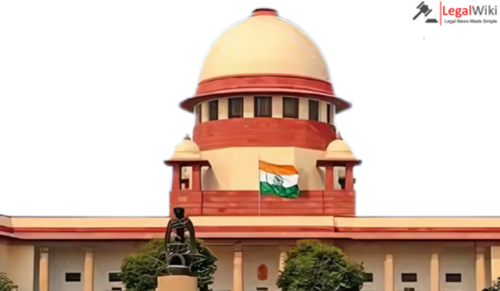
Supreme Court Dismisses Appeals in Actress Prathyusha Death Case, Upholds Abetment Conviction
The Supreme Court of India has dismissed appeals in the 23-year-old death case of Telugu/Tamil actress Prathyusha, ruling out allegations of murder and rape.
A Bench of Justices Rajesh Bindal and Manmohan held that consistent eyewitness accounts and medical evidence established death by poisoning. The Court noted that Prathyusha and her boyfriend, Gudipalli Siddhartha Reddy, had consumed poison amid opposition to their relationship, though Reddy survived.
Rejecting the defence of accidental intake, the Court found Reddy guilty of abetment to suicide for procuring the poison and directed him to surrender within four weeks.
It also termed the postmortem conducted by Dr. Muni Swamy unprofessional.
[Gudipalli Siddharta Reddy v. State (C.B.I.)]
VishwaBookmark
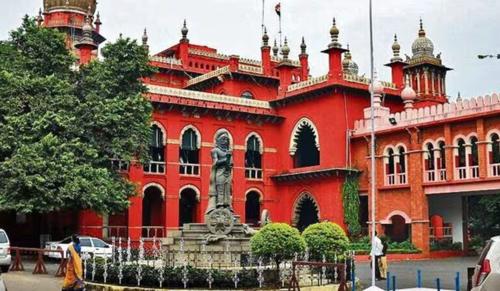
Madras High Court Upholds Life Sentence of Parents in Child Murder Case
The Madras High Court (Madurai Bench) upheld the life sentence of parents convicted for administering pesticide to their 9-year-old daughter suffering from mental illness.
A Division Bench of Justices GK Ilanthiraiyan and R Poornima ruled that personal hardship cannot justify taking a life. The Court emphasised that parents have a bounden duty to care for their child, regardless of mental or physical disability.
Rejecting arguments on hostile witnesses and a negative viscera report, the Court noted that prolonged medical treatment can eliminate traces of poison. Medical records and purchase evidence supported the prosecution's case.
The Bench confirmed conviction under Sections 302 and 342 IPC, stressing that no one can take the law into their own hands.
[Muneeswaran v. State]
MananBookmark
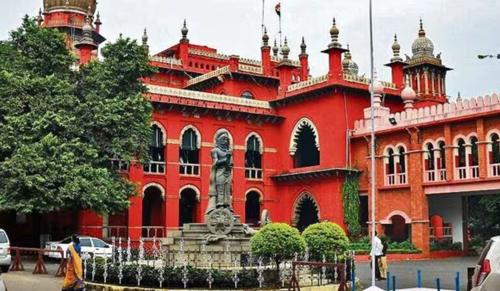
Madras High Court Flags Unjust Enrichment in ₹1 Public Land Lease Case
The Madras High Court permitted SIPCOT to recover sub-leasing charges from a private firm that had leased 17.64 acres of public industrial land for ₹1 per year but was earning over ₹12.4 lakh monthly by sub-letting it.
Setting aside a 2022 single-judge order, the Bench held that such arrangements amount to “unjust enrichment” and are opposed to public policy.
The Court ruled that buildings constructed on leased land are inseparable from it, making sub-leasing of sheds effectively sub-letting of land.
Invoking Article 39(b) and (c) and the public trust doctrine, the Court stressed that public resources cannot be exploited for disproportionate private gain.
[Spicot v. Carriers]
MananBookmark

Madras High Court Judge Recuses After Allegation of ₹50 Lakh Bribe Claim by Senior Advocate
A Madras High Court judge recused from hearing a criminal revision and connected quashing petition after allegations surfaced that a senior advocate collected ₹50 lakh from a client claiming it was meant to secure a favourable order.
The Court received a communication enclosing a representation that referred to the alleged payment.
Observing the seriousness of the allegations, the judge directed that the matter be placed before the Chief Justice for assignment to an appropriate Bench and for referral to the Vigilance Cell for enquiry.
The senior advocate denied the allegations and expressed willingness to cooperate.
[N Ganesh Agarwal v. Inspector of Police]
MahiraBookmark
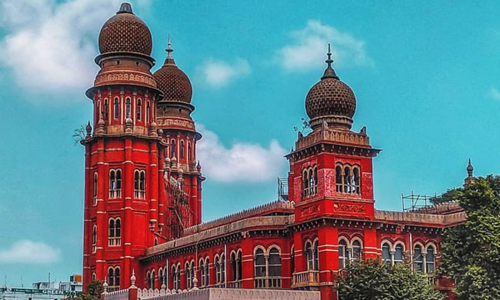
'Protecting Women Employees from Sexual Harassment at Workplace is Public Duty': Madras High Court
The Madras High Court pulled up the Railway Employees Cooperative Credit Society for its handling of a sexual harassment complaint by a woman employee.
The Society argued that a writ petition was not maintainable against it, but the Court disagreed. It held that protecting women employees from sexual harassment at the workplace is a public duty and cannot be avoided on technical grounds.
The Court emphasised that all institutions must have proper mechanisms and must act promptly on such complaints.
It directed the Society to follow the law on prevention of sexual harassment and to treat such grievances seriously.
VishwaBookmark

Madras High Court Upholds Joint Trial in POCSO Case, Says Child’s Interest Paramount
The Madras High Court has upheld a joint trial of two accused in a POCSO case, observing that the interest and welfare of the child victim outweigh the convenience of the accused.
One of the accused had argued that conducting a joint trial caused prejudice and challenged the conviction on that ground.
The Court held that since the alleged acts formed part of the same transaction, a joint trial was legally permissible and also spared the child from undergoing repeated examination.
Rejecting the argument that similar questioning under Section 351 of the BNSS (earlier Section 313 CrPC) vitiated the proceedings, the Court found no real prejudice was established and confirmed the conviction and sentence.
[Bhagavathiraj v. State of Tamil Nadu]
VishwaBookmark

Madras High Court Holds Litigant Guilty of Contempt for Genocide Allegation Against Judge
The Madras High Court held a litigant guilty of contempt of court for accusing a judge of genocide and making scandalous remarks against other judges.
The Court noted that instead of expressing regret, the litigant repeated the allegations and demanded an apology from the Bench. It observed that such conduct scandalises the institution and interferes with judicial proceedings.
However, the Court granted him one final opportunity to file an unconditional affidavit of apology showing genuine remorse.
If he fails to do so by the next hearing, the Court said it will impose punishment under Section 12 of the Contempt of Courts Act, 1971, including possible simple imprisonment.
[High Court of Madras v. T Ashok Surana]
MahiraBookmark
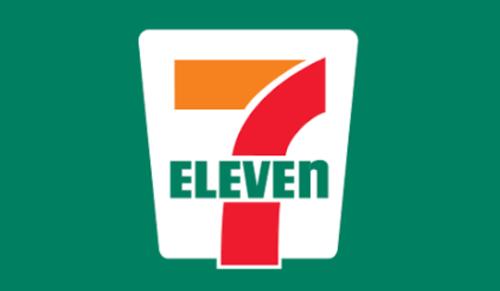
Madras High Court Upholds Rejection of 7-Eleven’s ‘Big Bite’ Trademark in India
The Madras High Court upheld the rejection of 7-Eleven’s “Big Bite” trademark application, ruling that international reputation alone cannot establish goodwill in India for a passing off claim.
Justice N Anand Venkatesh mentioned that 7-Eleven failed to show commercial presence or sufficient goodwill in the Indian market at the relevant time.
Mere online visibility was held insufficient to prove use. The Court also addressed Section 18 of the Act, noting that an application based on “proposed to be used” must reflect a definite and present intention to trade.
The Court also noted the absence of proof that the mark qualified as a well-known trademark under the Trade Marks Act, 1999.
[7-Eleven International LLC v. Deputy Registrar of Trademarks]
MananBookmark
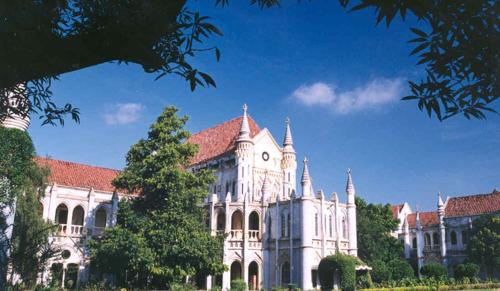
Madras High Court Directs MS Dhoni to Deposit ₹10 Lakh for CD Transcription in Defamation Suit
The Madras High Court has directed cricketer MS Dhoni to deposit ₹10 lakh towards the cost of transcribing and translating CDs relied upon in his 2014 defamation suit against Zee Media and others over IPL betting and match-fixing allegations.
Justice R.N. Manjula noted that the transcription was a “humongous task” requiring months of work by an official interpreter and typist.
Since the engagement of the court interpreter became necessary due to extraneous circumstances, the Court held that it was the plaintiff’s obligation to bear the cost.
The amount is to be deposited with the Chief Justice Relief Fund before March 12, and the transcription exercise is expected to be completed by the third week of March.
[MS Dhoni v. Zee Media Corporation]
MahiraBookmark
